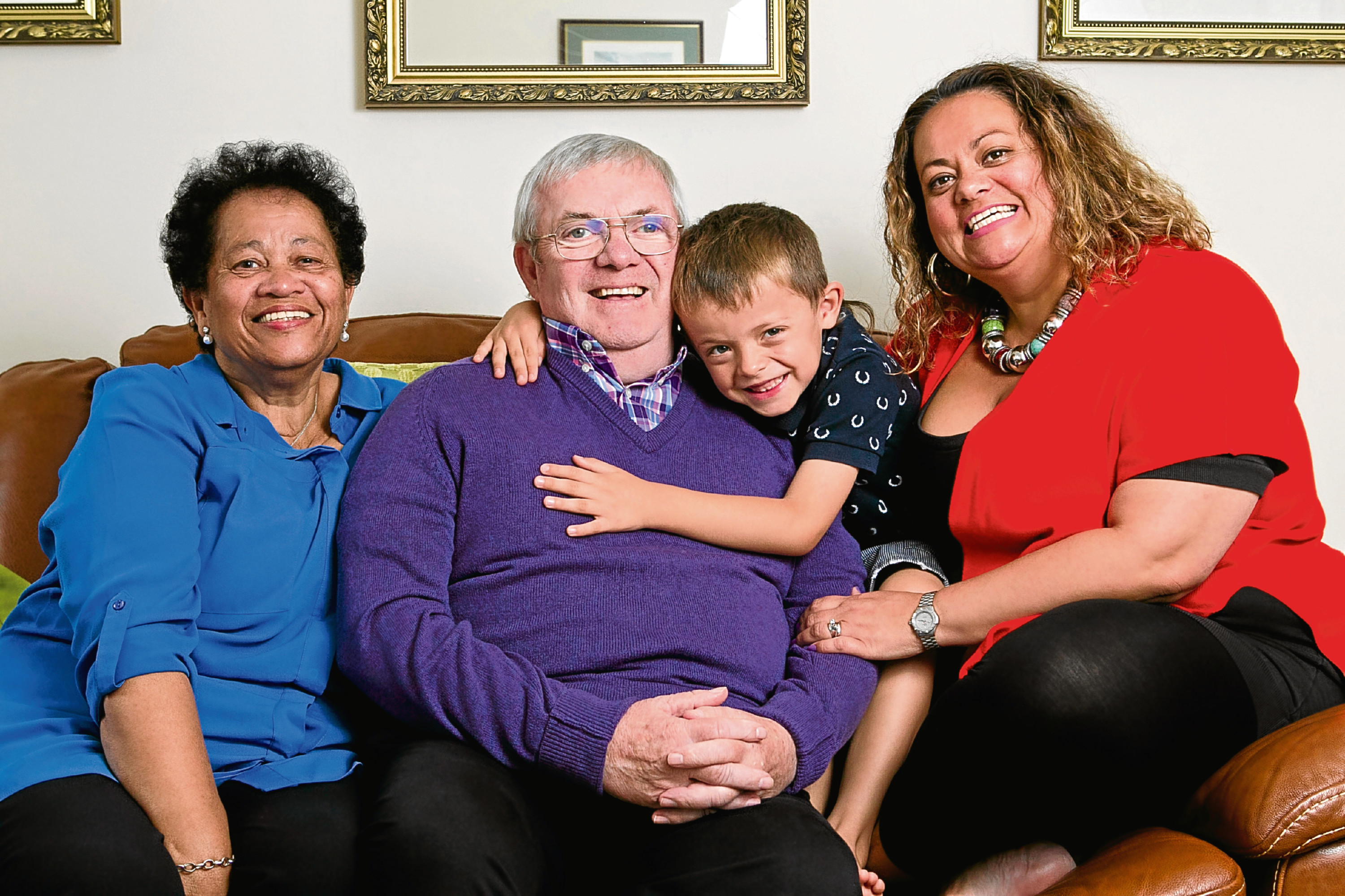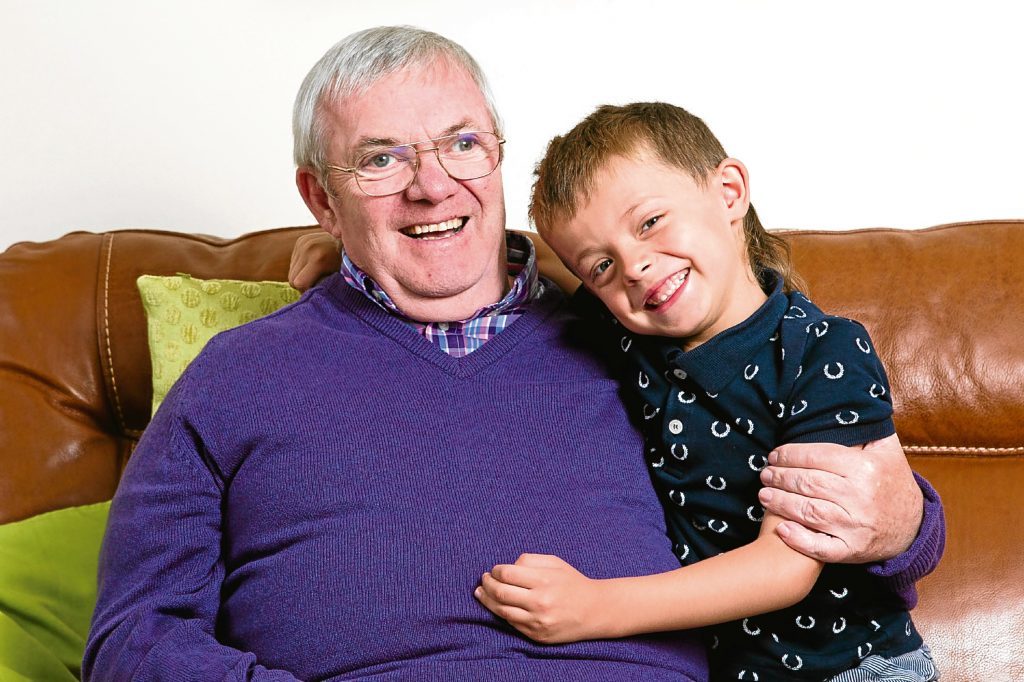
FIVE years ago, with a new baby in her arms and watching her dad deal with a dementia diagnosis, Natasha Collins made a tough decision.
The flat under her parents’ house in Edinburgh had come on the market and, despite it being much smaller than her current home, she felt the urge to buy it and be closer to her mum and dad.
Her husband, Wojtek, agreed and their growing family downsized – but they’ve not regretted their decision for one moment.
Watching her five-year-old son Iggy and dad John sit happily together, Natasha said: “My dad was diagnosed with early on-set dementia at 64, around the same time I was on maternity leave.
“It meant I started seeing my parents every day and, when the time came to return to work, I realised it would be very difficult for me to work the hours I do, spend time with the wee one and be around at my parents’ house to do as much as I could for them.
“They live in a four-in-a-block property and their downstairs neighbour put the house on the market. I said to my husband, ‘I think we need to buy this’.
“We were in a Victorian tenement flat, so it had a lot of space and charm, and we’re now in a 1930s-built flat which is considerably smaller.
“I don’t see it as a sacrifice or that I’m being a martyr. This is precious time – plus, I have built-in babysitters!”
John was in the Royal Scots and the TA when he was younger and later became a senior manager at British Gas.
“In the Army he specialised in communications – touch-typing and shorthand – and he was very smart and switched on,” explained Natasha, a business administrator for City of Edinburgh Council.
“Everyone says they would never have thought he would get dementia, that because he was clever and organised he wouldn’t be affected. But that’s not how it works.
“My dad’s 70 now and he lives well with dementia.
“He’s surrounded by his family who see him every day, he and Mum sing in the dementia choir and together they are very socially active.
“It’s important to remain socially engaged. Of course, I can see deterioration over the years. He used to read Iggy a bedtime story and now he can’t read or write. He’s also forgotten how to drive, swim, play golf, use a phone or a computer.
“But my dad’s always been a glass half-full type of person, so the journey isn’t as bad as it could have been.
“He is still happy and positive.”
Natasha, who has three siblings, is delighted by the bond her dad and son have developed.
“If Dad’s going to kick off, it’ll be when my mum, Jane, tells him to do something, or sometimes even with me.
“But he doesn’t do it with Iggy, so my wee boy gives his granddad his medication every night and tells him to take the tablets with water rather than chew them.”
Natasha and Iggy are preparing to take part in their first Memory Walk, at Balbardie Park of Peace in Bathgate, in September, and will be joined by other family members.
“The help and support we’ve had from Alzheimer Scotland has been incredible, and we’ve made so many friends along the way we would never have met had it not been for Dad’s illness.
“We try to be positive and we’d like to give something back to raise awareness and to help other people, just like my dad’s been helped.”
Memory Walks
Memory Walks will take place at 17 locations throughout Scotland in August and September.
The walks are perfect for all ages and abilities, and give families the chance to come together and pay tribute to someone close to them.
Registration for a Memory Walk is £10 for adults, £5 for 12-16 year-olds and under-12s walk for free.
Visit memorywalksscotland.org to find out more and to register.
If you are interested in volunteering, more information can be found at memorywalksscotland.org/volunteer or by calling 0131 243 1453.
If you have any questions about dementia or the services in your area, call Alzheimer Scotland’s free 24-hour helpline on 0808 808 3000 or email helpline@alzscot.org

Enjoy the convenience of having The Sunday Post delivered as a digital ePaper straight to your smartphone, tablet or computer.
Subscribe for only £5.49 a month and enjoy all the benefits of the printed paper as a digital replica.
Subscribe